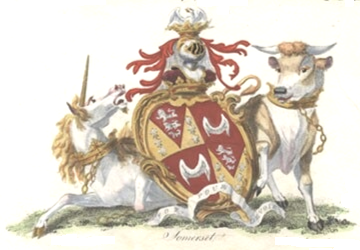I've been busy. Not just physically busy, but also very preoccupied with a number of things, mostly exciting, but one of them has been something that has deeply offended my sense of justice and morality.
It relates to the Stirling Knit Camp that I mentioned in my entry for 19 August. I've just read again what I wrote, still then on a 'high' from the wonderful experience I'd had and excited about new skills gained and exciting new chapters opening up in my life. I'd realised in the few days before the event started that there were problems, but I had no idea of the extent of these, and I guess I trusted the organiser. I've organised much smaller scale events myself (think Guides, tents, field) and despite my meticulous planning, some years things just didn't go to plan and we had to adapt and work around problems. How wrong I was to have thought the Knit Camp problems were of this nature, and indeed to have trusted the organiser.
Now, at this point, you may be wondering how what I've written above can be about the same event I wrote about in August. The answer is humbling and simple. Everyone else who was involved in the event including tutors, volunteers, and employees worked exceedingly hard to bring about all the things that were great about the event, and, indeed, they pulled it off to a remarkable extent. The vendors got creative with sign posting and greatly improved the market place at the end of the week. The attitude of all the other people I took classes with, knitted with, and had fun with, also helped. It was awesome in itself to be mixing with knitters from so many different countries and we generally accepted things as they'd turned out to be and had a really good time, despite everything.
Then gradually over the weeks after camp the whole dreadful truth started coming out. The story from a Tutor's point of view is best read in this post, better expressed than I could do so here. Basically, the reward for most of the tutors for all their 'above and beyond' efforts was not to be paid and not even to have their travelling and other expenses refunded.
One of the lovely people I met, Liz, also writes a blog I enjoy reading and she has written with integrity and honesty about her Knit Camp experiences here.
So what next you may ask. Am I going to move on, doing lovely things with my knitting needles and spinning wheel? In one sense, yes. The good bits of the Stirling experience have inspired and excited me, altered my lifestyle and changed what I do. To embrace all that is to honour the efforts that people put in to give the 'campers' a fantastic week, despite everything.
But I do tend to be a bit proactive about things. If I get an idea then I try and follow it through. Something that started cropping up in peoples' posts on Ravelry was their sense of appreciation and gratitude for what the tutors and others had done at knit camp, and a wish to try and help once the horror of unpaid tutors was revealed. This echoed my own personal feelings.
So I've been setting up a scheme that will enable people to fulfil their wish to help the group most affected financially; the tutors. What has taken the time is creating a scheme that is so professionally managed and so 'squeaky-clean' that people who have had their trust sorely tested will have the confidence to use it. Doing things this properly takes time (note to anyone planning a future knitting event!). Even the Accountancy Firm I have engaged to set up and run the scheme has encountered delays with PayPal in setting up the account, but it is finally coming together and we, that is the amazing community of knitters I've grown to know and love through all this, will very soon have a means of safely donating funds for the Stirling Tutor Group. And love is also there for my husband, who gave a wholehearted affirmative to my suggestion that we cover all the costs of the Accountant, so that every penny and every cent raised will go straight into the Tutor Fund.
So now I'm feeling a bit like a woman in her 41st week of pregnancy. A bit frustrated by delays (but it is so important not to 'launch' until every last detail is properly in place) and a bit anxious about what will emerge. I know the scale of the monies owed, and I know how many people were keen enough to get involved to contact me personally, but I have no idea how much money will be raised and donated. I hope that at the minimum it will cover the amount the tutors paid out in travel and other expenses, I dream it may be more. What I do know is that already, just for the tutors to know that there is so much concern and gratitude and support for them from so many people has been of emotional help. I also know that people have found it helpful that there is going to be a scheme that will enable them to express what they feel in a practical way by giving.
And now for a discursive interlude with the Tudors - perchance not as discursive as it first appears.
Time for a picture.
This is the imposing frontage of Hardwick Hall. Built in the 1590's for Bess of Hardwick, Countess of Shrewsbury, it sits on top of a hill overlooking the Derbyshire countryside, and is visible for miles around. Remembered in the phrase: Hardwick Hall, more glass than wall, it is a conspicuous symbol of Bess's wealth and power.
The six upper rooms have balustrades with Bess's initials ES, for Elizabeth Shrewsbury, clearly visible.
Ostentatious is a word that might come to mind. Certainly Bess didn't lack ambition. Her wealth grew not just through her 4 marriages, but through her careful management of her estates. Five of her six surviving children she managed to marry into noble families, and the sixth into Royalty.
This is a painting of Bess as a young woman
Here as an older woman, now the richest woman in the country after Elizabeth I.
My impression, as I looked at both paintings during a visit to Hardwick Hall yesterday, is that Bess's experiences have hardened her. It wasn't an easy task for her to achieve what she did. She survived an attempted poisoning and charges of embezzlement. She held positions at Court and some of her children had Royal Godmothers. She skilfully negotiated her way through and around the Elizabethan laws of succession and inheritance at a time when women had few property rights.
In many ways an admirable woman with a remarkable grasp of the minutia of law and financial affairs, who succeeded in ventures where other lesser women or those with less care and attention would have failed spectacularly.
This illustrates her position in Elizabethan society
Bess also enjoyed gambling, as illustrated by this beautiful inlaid table at Hardwick Hall. Unlike many gamblers who take too many risks and end up losing everything, Bess's accounts of 1593 show that her expenditure of £8,500 was significantly less than her income of £9,500.
Ambitions sometimes bear a cost, even for someone of the stature and ability of Bess. In spite of Bess's intelligence, skills and accomplishments, a level of attributes shared by few other women, these costs affected other people. Not all of her children's marriages were happy and the story of her granddaughter Arabella Stuart, a possible contender for the throne of England, is tragic.
Arabella Stuart as a teenager.
Arabella did marry Sir William Seymour, 2nd Duke of Somerset, although both led tragic lives. Below is the Somerset Coat of Arms, complete with unicorn.
Knitting a rubik's cube
2 months ago











